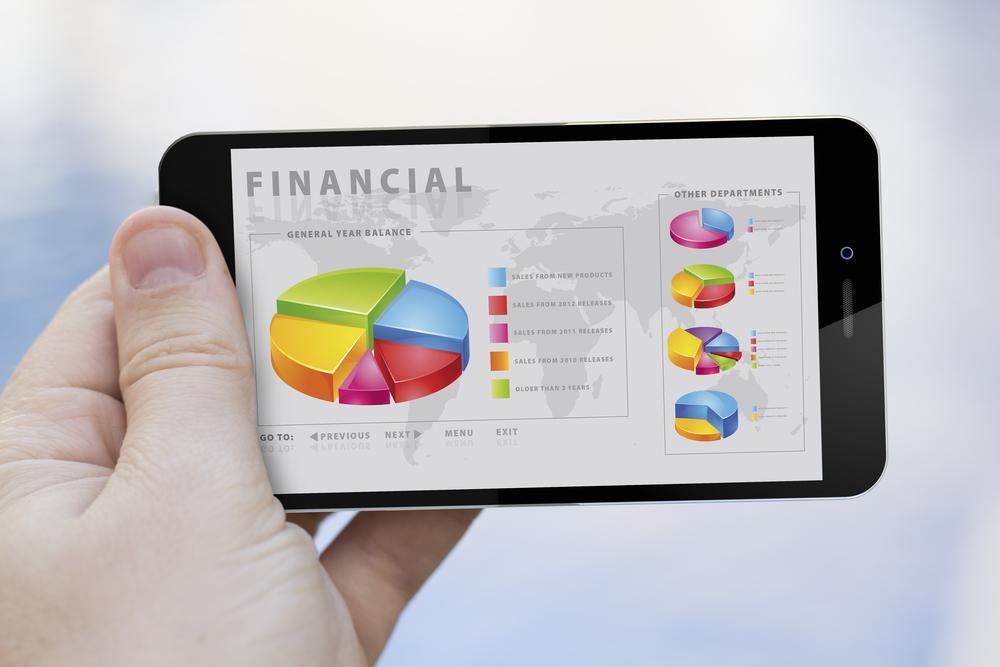Business News Daily provides resources, advice and product reviews to drive business growth. Our mission is to equip business owners with the knowledge and confidence to make informed decisions. As part of that, we recommend products and services for their success.
We collaborate with business-to-business vendors, connecting them with potential buyers. In some cases, we earn commissions when sales are made through our referrals. These financial relationships support our content but do not dictate our recommendations. Our editorial team independently evaluates products based on thousands of hours of research. We are committed to providing trustworthy advice for businesses. Learn more about our full process and see who our partners are here.
Cash vs. Accrual Method of Accounting
Understand how accrual accounting impacts your business and when to use it.

Table of Contents
The accounting method you choose matters, but how do you know which is best for your business? If you’re not an accountant yourself, it can be tricky to determine whether the cash or accrual accounting methods are better for you. You’ll need to choose one if you’re going to manage your books properly, however, and that’s where this guide comes in. Read on to learn more about each method, how they work and which is most suitable for your business.
Editor’s note: Looking for the right accounting software for your business? Fill out the below questionnaire to have our vendor partners contact you about your needs.
Cash vs. accrual accounting
The primary difference between cash basis accounting and accrual accounting is the timing of when you recognize income and expenses. Using the cash method, you record income when you are paid and expenses only when you pay them. Meanwhile, using the accrual method, you record income as it is earned and expenses when you incur the expense.
Cash basis accounting is much simpler and is favored by most small businesses. However, the IRS requires some businesses to use the accrual method or a hybrid of the two. The accrual method may also benefit your business in some situations.
Because income and expenses are recorded at different times if a business is using cash or accrual accounting, this also impacts when businesses incur a tax liability (or benefit) as a result of these transactions.
For example, when businesses using cash accounting make a sale, they incur tax liability only when funds from the sale reach their account. Meanwhile, businesses using accrual accounting are taxed on sales made during the year, whether or not they have received payment for those sales.
Cash vs. accrual at a glance
Category | Cash basis | Accrual basis |
|---|---|---|
When transactions are recorded | When cash is received or money is spent | When a sale occurs or an expense is incurred |
Tax liability incurred | When the income is received | When the income is recorded |
Ease of use | Very simple | More complex and time-consuming |
Required for businesses of a certain size | No | Yes |
What is cash basis accounting?
Cash basis accounting is a method where revenue is recorded when the cash is received. Likewise, expenses are recorded when they are paid.
A simple cash accounting method does not acknowledge or track accounts receivable or accounts payable. For example, if you provide a business service in December, but you don’t collect payment until January, you record the revenue and payment in January.
Using a straight cash method, you also don’t track inventory on hand. When you buy inventory, you record the purchase as an expense in the year you pay for it, regardless of when you sell the inventory.
Pros and cons of cash basis accounting
It’s important to determine how these pros and cons may affect your business.
Pros
- It emphasizes cash on hand: Cash accounting makes it easy to see how much money your business has at any given time and provides a snapshot of actual account balances. This may result in better cash flow management strategies.
- It offers more control over when you record transactions: You can maximize your tax benefit by timing the payment of expenses using the cash method. For example, in a profitable tax year, you may want to pay certain expenses before the end of the year to help lower your tax bill.
- It’s easier to track income and expenses: Record cash income and outgo. You don’t even have to track receivables or payables for accounting purposes. (You still need to keep good records for your own purposes.)
- You may defer taxes to a later year: Income isn’t taxed until it’s in your account. That means you won’t have to pay tax yet on income for which you have not been paid.
Cons
- It doesn’t show a business’s liabilities: Cash basis accounting makes it difficult to see your business’s liabilities because it doesn’t reflect future payables. (You should keep track of how much you owe, regardless of your accounting method.)
- It may not match income to related expenses accurately: This can make it harder to judge how your business is doing.
- It’s not appropriate for all businesses: The IRS does not allow companies that make sales on credit or have collected $30 million in gross sales in any one of the past three years to use cash accounting.
- It can be difficult to transition to accrual accounting: If you start out using cash accounting, it can be difficult to transition to accrual accounting later.
What is accrual basis accounting?
Under the accrual basis accounting method, income is recorded when it is earned and expenses are recorded when they are accrued, regardless of when money comes in or goes out. Accrual basis is the more common method of accounting for larger companies. It’s mandatory for corporations that have gross receipts of $30 million or more in any of the past three years as well as for tax shelters.
Pros
- It more accurately shows revenue and expenses: Unlike cash accounting, accrual basis accounting lets you see a full picture of your business’s finances. This is because you track receivables and payables rather than just money that has been deposited in or deducted from your accounts.
- It allows tax savings for depreciation: Using accrual accounting, you can take advantage of depreciation planning (of certain assets) to improve tax results.
Cons
- It has extensive rules and regulations: Accrual accounting is more involved than cash accounting and there are rules around specific types of transactions.
- It requires more work than cash accounting: If your company will benefit from accrual accounting (or you’re required to use it), expect it to take more time and work, either by you or someone you pay.
- It doesn’t emphasize money that’s available: Accrual accounting shows total asset balances based on transactions that may not have been settled yet. It’s important to look at your cash account, not just short-term assets, to see how much cash you have on hand.
- It may require you to pay taxes on income you haven’t yet received: Sales you make at the end of the year will be taxed in the year the sale was made, even if the cash for the sale isn’t received for weeks or months.
Example of how cash and accrual affect the bottom line
For example, see what happens when a small retail business completes the following transactions in one month:
- Purchases inventory for $5,000 in cash
- Pays $300 in utilities for a previous month
- Receives a $500 bill for building maintenance
- Makes $8,000 in cash sales of inventory that cost $2,000
- Sends a $2,000 invoice for a custom order it fulfilled
Cash basis
Using the cash basis method of accounting, the business only records cash received and cash disbursed. Therefore, it has $2,700 in profit for the month ($8,000 cash sales — $5,000 cash inventory purchase — $300 utilities paid = $2,700). The $500 maintenance expense and $2,000 invoice are not included because funds have not been spent or received.
Accrual basis
Meanwhile, if the business uses accrual accounting, it shows a profit of $7,500 for the month ($8,000 cash sales + 2,000 sales on credit — 500 bill received — 2,000 cost of inventory sold = $7,500).
Can I use a hybrid method of accounting?
Absolutely. Small businesses using the cash method of accounting typically use a combination of cash and accrual methods. The IRS permits hybrid using any combination of cash and accrual methods as long as the combination used accurately reflects your business income and you use the method consistently.
Small businesses on the cash method, for example, often track inventory on an accrual basis. This helps match the cost of inventory to the tax period when the inventory is sold.
If you use the cash method for reporting business income, you must also use the cash method for reporting business expenses.
How to choose the right accounting method for your business
The best accounting method for your business depends on several factors. In general, straight cash accounting is popular with small businesses. Businesses that carry inventory as part of their operations may choose a hybrid or accrual system. Alternatively, large businesses generally use accrual basis accounting to track income and other financial metrics more accurately. Small businesses that are expected to grow may also want to start with accrual basis accounting so they’re prepared for future accounting needs.
The IRS requires certain businesses to use accrual basis accounting. For example, corporations other than S corporations must use accrual basis accounting if they averaged over $30 million in gross receipts over the past three years. Certain corporations and tax shelters — including those that make sales on credit — are also prohibited from using cash accounting.
The best accounting software programs make it easy to choose whether you want to use cash or accrual accounting for your business; some even provide guidance to determine which one will benefit you more.
Choose your accounting method carefully
When you’re starting a business, one decision you must make is whether to use the cash, accrual or a hybrid accounting method. You’ll want to choose carefully because it is more work and requires IRS approval to change your method later.
No one method is best for all businesses. A small service business, for example, may be fine with a straightforward cash accounting system. Meanwhile, a car dealership generally must track inventory to accurately reflect business net income. A larger, growing business may need more comprehensive reporting on the accrual method. No matter which method you choose, any major accounting software can help you keep accurate records for all your reporting needs.













